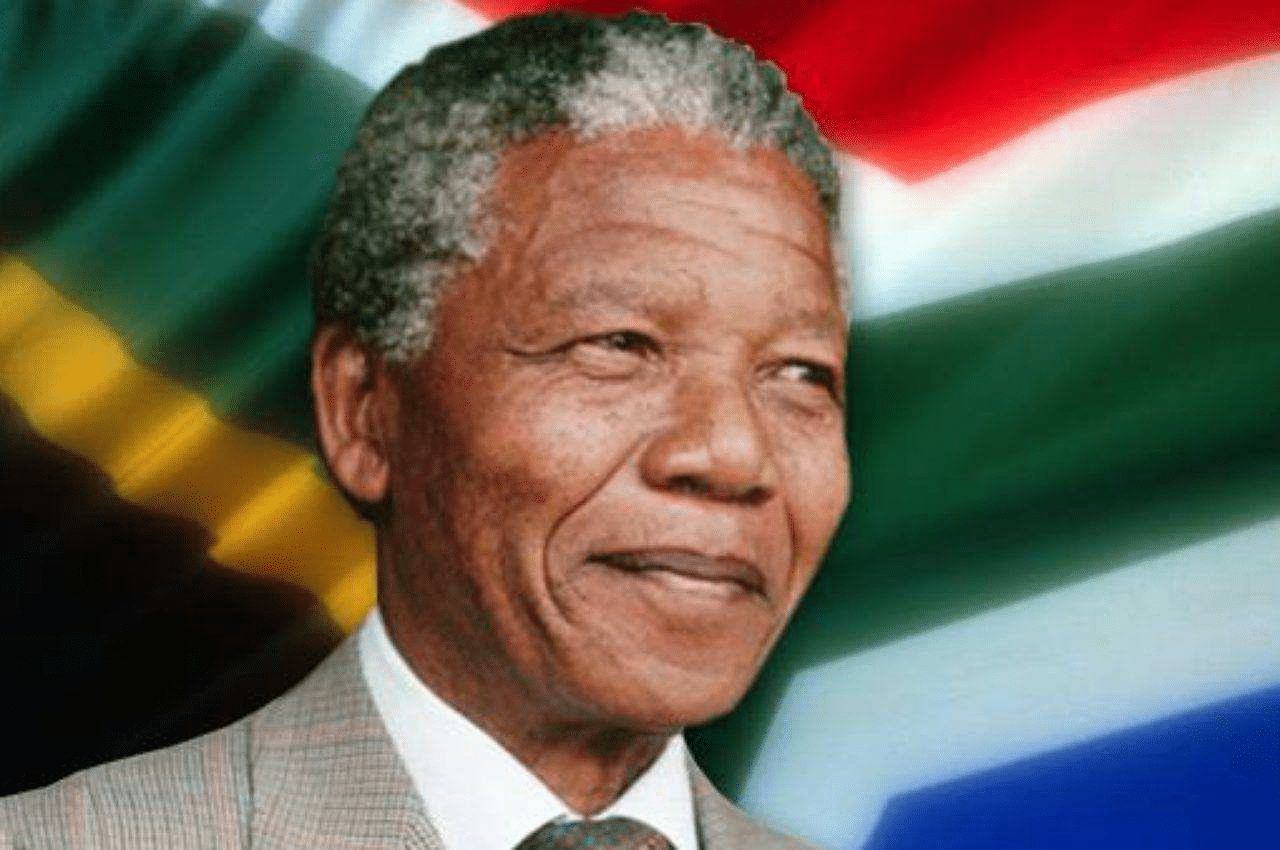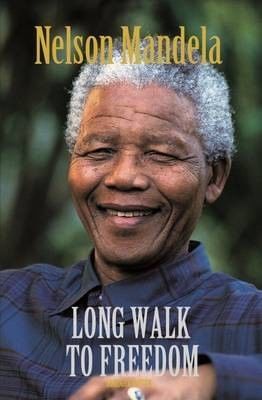Class 10 English Chapter 1 Question Answers - First Flight
| Table of contents |

|
| Passage - 1 |

|
| Passage - 2 |

|
| Passage - 3 |

|
| Passage - 4 |

|
| Passage - 5 |

|
| Passage - 6 |

|
Passage - 1
Direction: Read the given extract and answer the questions that follow:
The policy of Apartheid created a deep and lasting wound in my country and my people. All of us will spend many years, if not generations, recovering from that profound hurt. But the decades of oppression and brutality had another, unintended effect and that was that it produced Oliver Tambos, Walter Sisulus, Chief Luthulis, etc., men of such extraordinary courage, wisdom and generosity that their like may never be known again.
Q1: Whom does ‘my’ refer to in the passage?
(a) Chief Luthulis
(b) Nelson Mandela
(c) Oliver Tambos
(d) Walter Sisulus
Correct Answer is option (b)
The passage is written from Nelson Mandela's perspective, so the pronoun "my" refers to him.
Q2: Who were the people of extraordinary courage, wisdom and generosity?
(a) Oliver Tambos
(b) Walter Sisulus
(c) Chief Luthulis
(d) All of them
Correct answer is option (d)
The passage mentions that men like Oliver Tambos, Walter Sisulus, and Chief Luthulis were of extraordinary courage, wisdom, and generosity.
Q3: From the passage, find one word which means ‘a period of ten years’.
(a) apartheid
(b) profound
(c) unintended
(d) decades
Correct answer is option (d)
The word "decades" means a period of ten years.
Q4: What created a lasting wound in Nelson’s country?
(a) Unintended effect
(b) Policy of apartheid
(c) Oppression
(d) Brutality
Correct answer is option (b)
The policy of apartheid created a deep and lasting wound in Nelson Mandela's country, as mentioned in the passage.
 Nelson Mandela
Nelson Mandela
Passage - 2
Direction: Read the given extract and answer the questions that follow:
No one is born hating another person because of the colour of his skin or his background or his religion. People must learn to hate and if they can learn to hate, they can be taught to love, for love comes more naturally to the human heart than its opposite. Even in the grimmest times in prison, when my comrades and were pushed to our limits, I would see a glimmer of humanity in one of the guards, perhaps just for a second, but it was enough to reassure me and keep me going. Man’s goodness is a flame that can be hidden but never extinguished.
Q1: What comes more naturally to the human heart than any other emotion?
(a) hate
(b) anxiety
(c) love
(d) anger
Correct answer is option (c)
The passage states that love comes more naturally to the human heart than its opposite (hate).
Q2: According to Mandela, Man’s ________ is a flame that can be hidden but never extinguished
(a) goodness
(b) kindness
(c) smartness
(d) understanding
Correct answer is option (a)
Mandela mentions that man's goodness is like a flame that can be hidden but never extinguished.
Q3: Trace a word from the passage that means: “Severe”.
(a) comrades
(b) humanity
(c) grimmest
(d) extinguished
Correct answer is option (c)
The word "grimmest" in the passage is synonymous with "severe."
Q4: In the passage, man’s goodness is compared to what?
(a) hate
(b) grimmest
(c) humanity
(d) flame
Correct answer is option (d)
The passage compares man's goodness to a flame that can be hidden but never extinguished.
Passage - 3
Direction: Read the given extract and Answer the questions that follow:
Perhaps it requires such depths of oppression to create such heights of character. My country is rich in the minerals and gems that lie beneath its soil, but have always known that its greatest wealth is its people, finer and truer than the purest diamonds.
Q1: Whose country is referred to here?
(a) Nelson Mandela
(b) George Washington
(c) Mahatma Gandhi
(d) Martin Luther King
Correct answer is option (a)
The passage refers to Nelson Mandela's country, South Africa.
Q2: What is a country’s greatest wealth?
(a) its economy
(b) its infrastructure
(c) its people
(d) its resources
Correct answer is option (c)
The passage emphasizes that the greatest wealth of a country is its people, who are finer and truer than the purest diamonds.
Q3: The minerals and gems are compared to whom?
(a) Diamonds
(b) Wealth
(c) Resources
(d) People
Correct answer is option (d)
In the passage, the minerals and gems beneath the soil are compared to the people of the country, indicating their value.
Q4: Mention the synonym of ‘Valuable stones’ in the passage?
(a) Minerals
(b) Diamonds
(c) Gems
(d) Soil
Correct answer is option (c)
The word "gems" in the passage is synonymous with "valuable stones."

Passage - 4
Direction: Read the given extract and Answer the questions that follow:
“We have at last, achieved our political emancipation”. We pledge ourselves to liberate all our people from the continuing bondage of poverty, deprivation, suffering, gender and other discrimination.
Q1: Who is the speaker?
(a) Sisulus
(b) Chief Luthulis
(c) Oliver Tambos
(d) Nelson Mandela
Correct answer is option (d)
The passage is from a speech given by Nelson Mandela, referring to the achievement of political emancipation.
Q2: What have they at last achieved?
(a) political recognition
(b) political name
(c) political emancipation
(d) political fame
Correct answer is option (c)
The passage states that they have achieved "political emancipation," which means freedom from political control or oppression.
Q3: Trace a word from the passage that means “a formal promise”.
(a) pledge
(b) promise
(c) swear
(d) agree
Correct answer is option (a)
The word "pledge" in the passage refers to a formal promise to liberate the people.
Q4: Where is the pledge taken by Nelson Mandela?
(a) United States of America
(b) South Africa
(c) Africa
(d) United Kingdom
Correct answer is option (b)
The pledge mentioned in the passage was taken by Nelson Mandela in South Africa.
Passage - 5
Direction: Read the given extract and Answer the questions that follow:
In life, every man has twin obligations- obligations to his family, to his parents, to his wife and children; and he has an obligation to his people, his community, his country. In a civil and humane society, each man is able to fulfil those obligations according to his own inclinations and abilities. But in a country like South Africa, it was almost impossible for a man of my birth and colour to fulfil both of those obligations. In South Africa, a man of colour who attempted to live as a human being was punished and isolated.
Q1: What are the obligations that every man has in his life?
(a) nature and his family.
(b) family and friends.
(c) his family and his country.
(d) God and his family.
Correct answer is option (c)
The passage mentions that every man has twin obligations: one to his family and another to his country.
Q2: Why was it impossible for a coloured man to discharge his obligations in South Africa?
(a) he would be punished and isolated.
(b) he would face many obstacles.
(c) he would be killed.
(d) his family members would be killed.
Correct answer is option (a)
The passage states that a man of colour who attempted to live as a human being in South Africa was punished and isolated.
Q3: What does it mean by the phrase ‘a man of my birth’?
(a) a person who is born in a royal family.
(b) that the person was born in an educated family.
(c) that the person was born in an uneducated family.
(d) that the person was born in a poor and humble family.
Correct answer is option (d)
The phrase "a man of my birth" refers to someone who was born into a poor and humble family, as indicated by the context of the passage.
Q4: What is the adjective form of ‘punished’?
(a) punish
(b) punishing
(c) his family and his country
(d) punishment
Correct answer is option (b)
The adjective form of the verb "punish" is "punishing." The word "punishment" is a noun.
Passage - 6
Direction: Read the given extract and Answer the questions that follow:
We, who were outlaws not so long ago, have today been given the rare privilege to be host to the nations of the world on our town soil. We thank all our distinguished international guests for having come to take possession with the people of our country of what is, after all, a common victory for justice, for peace, for human dignity. We have, at last, achieved our political emancipation. We pledge ourselves to liberate all our people from the continuing bondage of poverty, deprivation, suffering, gender and other discrimination.
Q1: What does the phrase ‘rare privilege’ mean here?
(a) the opportunity of winning the first Olympic gold medal.
(b) the rare privilege to host the nations of the world.
(c) the rare privilege where a black person become the president of South Africa.
(d) the rare privilege to meet the important leaders of the world.
Correct answer is option (b)
The phrase "rare privilege" in this context refers to the opportunity to host the nations of the world, a significant and special occasion for the country.
Q2: Why does Mandela thank the gathering?
(a) for helping him become the president of South Africa.
(b) for gracing the occasion to celebrate his country’s victory of justice, peace and human dignity.
(c) for voting for him in the elections and helping him win the elections.
(d) for helping him in taking his country towards the path of progress.
Correct answer is option (b)
Mandela thanks the gathering for their presence in celebrating the victory of justice, peace, and human dignity in his country.
Q3: What have the people of this country achieved?
(a) Happiness, joy and prosperity.
(b) wisdom, good luck and richness of culture.
(c) a common victory for justice, peace and human dignity.
(d) success in educational, economic and political field.
Correct answer is option (c)
The passage highlights the achievement of a common victory for justice, peace, and human dignity by the people of the country.
Q4: Give a word similar in meaning to ‘a special right’ from the passage.
(a) Deprivation
(b) Discrimination
(c) bondage
(d) privilege
Correct answer is option (d)
The word "privilege" in the passage means "a special right," making it the correct synonym in this context.
|
61 videos|620 docs|69 tests
|
FAQs on Class 10 English Chapter 1 Question Answers - First Flight
| 1. What are the key themes explored in Nelson Mandela's "Long Walk to Freedom"? |  |
| 2. How does Nelson Mandela describe his early life and upbringing in "Long Walk to Freedom"? |  |
| 3. What role did Nelson Mandela play in the anti-apartheid movement? |  |
| 4. How did Nelson Mandela's imprisonment influence his perspective on freedom and leadership? |  |
| 5. What is the significance of the title "Long Walk to Freedom"? |  |





















